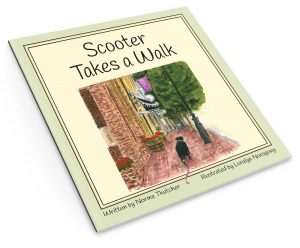
Photo courtesy of JJ Thompson on Unsplash
For eight years Australian Bronnie Ware worked for a company that supplied people to provide personal care of the terminally ill. Her job description as a palliative caregiver included items such as manage medications, assist with showering and toilet needs, ensure patient’s meal needs are met.
She was quite competent in the work but she was even better at something else: listening.
In an interview she said that around the end of the first year in that line of work, she realized that most dying people—those who know they have three days to three months left to live—have deep regrets.
Bronnie began keeping a journal about her talks with those she attended to. She felt called to write about these last conversations in the hope of providing some guidance to the rest of us who still have time to change our lives. In a TED talk, she said that even though she was witnessing the heartache of regret, she felt blessed with these lessons and knew she must pass them along.
From her book The Top Five Regrets of the Dying, here they are:
- “I wish I’d had the courage to live a life true to myself, not the life others expected of me.” This most common regret is lack of courage in making dreams a reality.
- “I wish I hadn’t worked so hard.” Ware said that nearly every man she cared for expressed this regret of losing time with their family and friends. The women had been of an age where most of them were not a primary bread-winner, so it wasn’t as common then with women. That likely has now changed.
- “I wish I’d had the courage to express my feelings.” They had settled for a life of mediocrity and never reached a level of being the best they could be.
- “I wish I had stayed in touch with my friends.” Getting caught up in the busyness of their own lives, they let relationships fade away.
- “I wish that I had let myself be happier.” Like me, Ware believes that happiness is a choice. Many of those with this regret just settled for pretending they were content and lived lives without joy.
We’re each going to die; there’s no getting around that fact.
The question is, in our last few days, do we want to look back at our life with regret or with overwhelming joy of how we chose to live?




Whenever I find myself in the throes of a woe -is-me pity party, I’m grateful to recall that famous quote of Abe Lincoln: “Most folks are about as happy as they make up their minds to be.” That usually brings me out of it. Such a wise man!
There’s another piece of Abe’s wisdom that I love. I won’t look it up on line so it may not be a perfect quote, but you’ll get the gist of his message. The press was criticizing his actions, and his staff questioned why he didn’t respond. His reply: “If I were to try to return, much less answer, all that is said against me, This office would have time for little else. I do the very best I can, the very best I know how, and I mean to keep doing so until the end. If the end brings me out right, then all that is said against me won’t amount to anything. If the end brings me out wrong, ten angels swearing I was right would make no difference.” Giving life’s various situations our very best is all any of us can do, though wouldn’t it be great to have those ten angels as back-up!
This is wonderful advice from “the man” that we should all follow. I volunteer to be one of your ten angels.